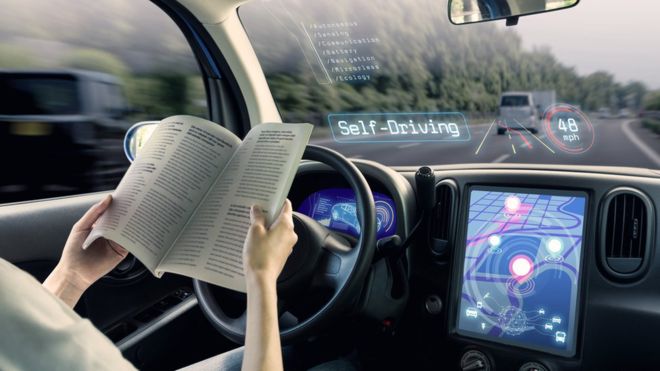Find out the week’s top mobile stories from around the world.
This week.. US step up mobile data privacy efforts, Paytm test face recognition for payments, is 5G necessary for self-driving cars, exploring the new era in mobile and much more.

US authorities step up mobile data privacy efforts
Mobile World Live
The US is working on a new set of consumer privacy rules which aim to provide high levels of protections for individuals while ensuring organisations are transparent about how they use personal information.
In a statement, the US Department of Commerce’s National Telecommunications and Information Administration (NTIA) confirmed it had started a public consultation on a proposal to develop new consumer data privacy rules, with feedback expected by 26 October.
NTIA said it is seeking comments covering a range of potential outcomes including transparancy about how organisations collect, use, share and store users’ personal information. Companies should also look to minimise the data they use, store and share in proportion to the potential risks; and take steps to manage the dangers of disclosure or harmful use of personal data.
Read more…
Paytm is testing face recognition tool for payments
Economic Times
BENGALURU: If Apple taught Indian consumers to unlock its new phones with a twitch of their eyes, Paytm is working on introducing facial recognition to enable digital payments.
Noida-based Paytm has begun testing a facial recognition tool that can unlock its payments application on a customer’s smartphone, company executives said. It also plans to extend this feature to allow customers to pay at merchant outlets with the blink of an eye.
Such a biometrics-based authentication tool could enhance the security of the app since offline payment modes are vulnerable to phishing attacks that trick customers into revealing their passwords or mobile pin numbers to fraudsters.
Read more…
‘Major threat’ as millions of pounds lost to scams ‘funds terrorism and drugs’
Sky News
Bank customers in the UK lost £500m in six months to scammers and fraudsters, figures have revealed.
Nearly a third of the money was lost in authorised push payment (APP) scams, which mean the customer has no protection to reclaim their losses.
Customers lost £145m through APP scams in the first half of 2018, while the other £358m was lost in unauthorised fraud and could be repaid.
Unauthorised fraud is when a transaction is carried out by the third party without permission being given by the account holder. Victims of this type of fraud have protection.
Read more…
The new era in mobile
Tech Crunch
A future dominated by autonomous vehicles (AVs) is, for many experts, a foregone conclusion. Declarations that the automobile will become the next living room are almost as common — but, they are imprecise. In our inevitable driverless future, the more apt comparison is to the mobile device. As with smartphones, operating systems will go a long way toward determining what autonomous vehicles are and what they could be. For mobile app companies trying to seize on the coming AV opportunity, their future depends on how the OS landscape shapes up.
By most measures, the mobile app economy is still growing, yet the time people spend using their apps is actually starting to dip. A recent study reported that overall app session activity grew only 6 percent in 2017, down from the 11 percent growth it reported in 2016. This trend suggests users are reaching a saturation point in terms of how much time they can devote to apps. The AV industry could reverse that. But just how mobile apps will penetrate this market and who will hold the keys in this new era of mobility is still very much in doubt.
Read more…
On the Move: Why Mobile Personalized Video Has Legs
Customer Think
Last year, Flurry reported that consumers spend at least five hours per day on mobile devices. Furthermore, the percentage of time consumers spend on mobile browsers continues to decline, while the time they spend on mobile apps is rising. As Instagram shows huge gains in video views – and Facebook, Snapchat and YouTube experience growth in video engagement within their apps – it’s imperative for major brands to integrate video into their mobile app environments.
A brand must first evaluate its mobile strategy before undertaking any in-app personalized video initiative. If a brand’s current mobile app experience resembles the norm of brand-to-consumer communications, then it’s likely brand-centric, mostly transactional and not optimized for proper messaging to customers. Such a scenario is the perfect opportunity for in-app mobile video to take advantage of a brand’s mobile app real estate. By turning the customer experience into one that goes beyond transactions into the realm of the personal, brands can establish deeper, more meaningful relationships with customers.
Read more…
Home Buying Goes High-Tech As Millennials Become Largest Real Estate Buyers
Forbes
Home buying has gone high tech and the market has millennials and fintech companies to thank.
Rewind a few years and most people shopping for a home would scoff at taking a virtual reality tour, applying for a mortgage on their mobile phone or purchasing a house without stepping foot in it. But millennials, the newest crop of homebuyers, grew up with a smartphone attached to their hip and are much more comfortable buying everything from clothing to a house over the Internet. According to a Redfin survey released earlier this year 45% of millennial homebuyers made offers sight-unseen in 2017.
Read more…
Mobile startup ONEm Communications launches hybrid crypto for Africa
Chepicap
Mobile tech startup ONEm Communications has launched their hybrid cryptocurrency with the focus on reaching the unbanked masses in Africa. The token will be an internet free coin that can be transferred between users via cell phone using text or apps.
Nasdaq announced the launch of ONEm’s mCoin. The focus of the project is to bring the benefit of cryptocurrency to millions of unbanked Africans.
ONEm Communications is a London based tech startup that focuses on mobile services that create an ecosystem allowing people to communicate and access information via mobile devices.
Read more…
Uber launches new app and digital wallet in Brazil
Zdnet
Uber has announced a series of new offerings aimed at further increasing its foothold in Brazil at an event in São Paulo yesterday (26).
For the company’s second largest market – Uber has more than 22 million users and 500,000 drivers in Brazil – the mobility firm has launched Uber Lite, a 5MB app aimed at Android-based smartphone users with technology from 2014 onwards and slower mobile connections.
“In Brazil, where the growth of the platform is more pronounced in metropolitan areas of the capitals, Uber Lite will bring even more possibilities for people to move around,” says Manik Gupta, product vice president at Uber.
Read more…
Will 5G be necessary for self-driving cars?
BBC
Proponents of 5G say it will offer ultra-fast connections, speedier data downloads, and be able to handle millions more connections than 4G mobile networks can cope with today. One use for 5G is self-driving cars, but will they really need it?
The telecoms industry envisions autonomous cars equipped with hundreds of sensors collecting and receiving information all at once over a network.
It calls this concept “Vehicle-to-everything” (V2X).
To achieve this, the car needs to detect blind spots and avoid collisions with people, animals or other vehicles on the road.
Read more…
Mobile Websites Can Tap Into Your Phone’s Sensors Without Asking
Wired
When apps wants to access data from your smartphone’s motion or light sensors, they often make that capability clear. That keeps a fitness app, say, from counting your steps without your knowledge. But a team of researchers has discovered that the rules don’t apply to websites loaded in mobile browsers, which can often often access an array of device sensors without any notifications or permissions whatsoever.
That mobile browsers offer developers access to sensors isn’t necessarily problematic on its own. It’s what helps those services automatically adjust their layout, for example, when you switch your phone’s orientation.
Read more…
Ofcom sets out plans to stop mobile users paying for handsets they already own
Money Saving Expert
The telecoms regulator has announced new proposals to stop mobile phone users paying for a handset they’ve already bought. But you don’t need to wait for a change in the rules – if you’re out of your minimum contract term, check now if you can switch and save £100s a year.
The Ofcom consultation published today estimates some 1.5 million mobile phone users are still paying installments towards a handset they’d already paid for. The regulator says it’s “unacceptable” that mobile providers are not transparent about the separate costs of a handset and airtime within a contract.
It’s now consulting on two possible solutions. Mobile firms could be required to clearly break down the different costs within a contract – or they could even be forced to move customers to a cheaper default deal once their minimum contract term is up.














